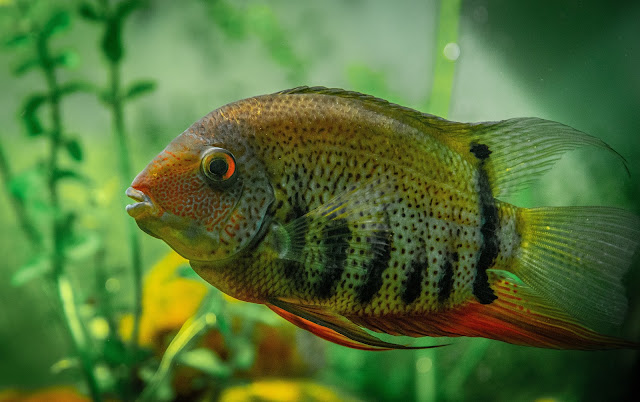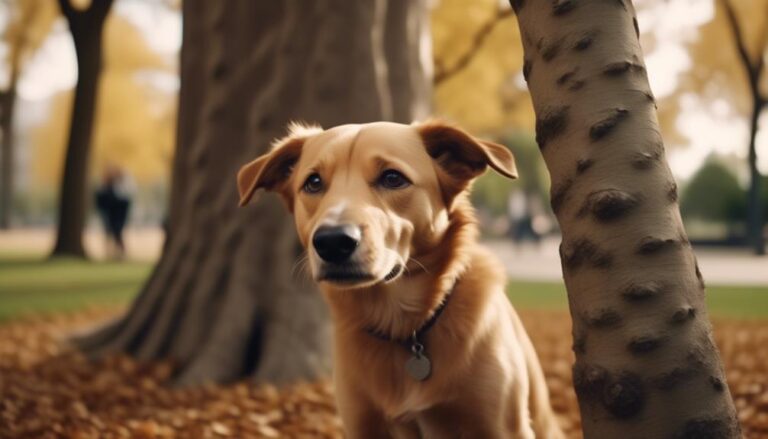Truly Why Dogs Shouldn’t Eat Grapes Guidance

Why Dogs Shouldn’t Eat Grapes: Have you ever come across a bowl of juicy grapes and wondered if your furry friend could enjoy them too? Well, here’s a cautionary tale for you: grapes can be extremely dangerous for dogs. Yes, those seemingly harmless fruits can actually pose a serious threat to your canine companion’s health. But why exactly shouldn’t dogs eat grapes? And what are the potential consequences if they do? Let’s explore the answers to these questions and delve into the grape dangers that every dog owner should be aware of.
Health Risks of Grapes for Dogs
Dogs face significant health risks when consuming grapes, raisins, or sultanas, as these fruits contain toxic substances that can lead to symptoms ranging from vomiting and diarrhea to kidney damage or failure. Grapes, specifically, are highly toxic to dogs and can cause severe health complications. If your dog ate a grape or any product containing grapes, it is crucial to understand the potential dangers.
The toxic effects of grapes on dogs have been well-documented. Even small amounts of grapes can be harmful, and there is no safe threshold for consumption. Dogs can experience mild symptoms, such as gastrointestinal upset, including vomiting and diarrhea, or more severe complications like acute renal failure. The toxic substances responsible for grape poisoning in dogs are tartaric acid and potassium bitartrate, which are found in high concentrations in grapes.
If your dog has ingested grapes or raisins, it is vital to seek immediate veterinary attention. Time is of the essence, as prompt medical intervention can help prevent potential kidney failure. Your veterinarian may induce vomiting to remove any remaining grapes from your dog’s system. They may also administer activated charcoal to help absorb any toxins in the stomach.
To avoid accidental ingestion and potential toxicity in dogs, dog owners must be aware of the dangers of grapes and raisins. Avoid feeding these fruits or any foods containing them to your dog. Be cautious when disposing of grape products, ensuring they are out of your dog’s reach. By being vigilant and proactive, you can protect your furry friend from the health risks associated with grapes.
Signs of Grape Toxicity in Dogs
One of the common signs indicating grape toxicity in dogs is a loss of appetite. If your dog suddenly shows disinterest in their food, it could be a red flag that they have ingested grapes. Dogs may also exhibit lethargy, weakness, and unusual stillness after consuming grapes. They may appear tired and lack their usual energy levels. Vomiting and diarrhea are other signs that can occur within a few hours of grape consumption. If your dog starts vomiting or has loose stools, it is important to consider the possibility of grape toxicity.
Another sign to look out for is abdominal pain. If your dog seems uncomfortable or reacts negatively when you touch their abdomen, it could be an indication of grape toxicity. Dehydration is also a sign of grape toxicity, and you can test for it by gently pulling up the skin at the back of your dog’s neck. If the skin does not immediately go back to its original position, it could mean that your dog is dehydrated. These signs should not be ignored, as grape toxicity can have serious health consequences for dogs. Remember, dogs shouldn’t eat grapes due to the potential dangers they pose.
Immediate Steps to Take If Your Dog Eats Grapes
If your dog eats grapes, it is important to take immediate action. Contact your veterinarian right away and provide them with all the necessary information. They may recommend inducing vomiting in certain cases but do not attempt this if your dog is unconscious or experiencing breathing difficulties. Prompt veterinary guidance is crucial in preventing any potential complications.
Induce Vomiting Immediately
To effectively address the dangers of dogs eating grapes, prompt action must be taken to induce vomiting and expel the toxins from their system. If your dog eats grapes, it is crucial to act quickly. Contact your veterinarian or the nearest poison control center for guidance on inducing vomiting. However, it is important to note that you should not induce vomiting if your dog is unconscious or experiencing breathing difficulties. Seek immediate veterinary care in such cases. Inducing vomiting immediately after grape ingestion can help prevent the absorption of harmful substances and reduce the risk of kidney failure. Remember, time is of the essence, so do not delay in seeking professional help for your dog.
Contact a Veterinarian
After taking immediate action to induce vomiting, the next crucial step is to contact a veterinarian if your dog eats grapes. Grapes and raisins can be toxic to dogs and can cause serious health issues. It is important to seek veterinary assistance as soon as possible, even if your dog seems fine initially. The veterinarian will be able to assess the situation and provide appropriate guidance and treatment.
They may recommend additional steps such as monitoring your dog’s symptoms, administering activated charcoal, or conducting blood tests to check for any potential organ damage. Remember that it is always better to be safe than sorry when it comes to your dog’s health. If you are unable to reach your regular veterinary clinic, you can also contact a poison control center for further advice.
Monitor for Symptoms
Keep a close eye on your dog for any symptoms of grape toxicity, such as vomiting or diarrhea. If your dog eats grapes or raisins, it is important to monitor them closely for any signs of illness. Grape dangers can lead to toxicity in dogs, which can cause a range of symptoms.
Look out for lethargy, weakness, and abdominal pain, as these could indicate a grape or raisin ingestion. Additionally, be on the lookout for increased thirst, decreased urine production, or signs of dehydration, as these are potential indicators of grape toxicity. If your dog exhibits any of these symptoms, it is crucial to contact your veterinarian immediately for guidance on potential treatments or next steps. Prompt veterinary care is necessary if there is uncertainty about the amount of grapes consumed or if your dog displays any concerning symptoms.
Treating Grape Poisoning in Dogs
If your dog ingests grapes or raisins, it is crucial to seek immediate veterinary attention to treat grape poisoning. Grape toxicity can have serious consequences for your dog’s health, and prompt action is essential. Upon arrival at the vet, they may induce vomiting or administer activated charcoal to remove the toxins from your dog’s system. Inducing vomiting can help eliminate any remaining grapes or raisins in the stomach, preventing further absorption of the harmful substances. Activated charcoal, on the other hand, works by binding to the toxins and preventing their absorption in the gastrointestinal tract.
In some cases, hospitalization may be necessary for close monitoring and fluid therapy. If your dog’s kidney function is affected by grape poisoning, it is important to provide them with the necessary medical care to support their recovery. Your veterinarian will assess the severity of the situation and determine the best course of action.
When seeking veterinary care, make sure to provide your veterinarian with accurate information about the amount and time of grape ingestion. This will help them tailor the treatment plan specifically for your dog’s situation. The more information you can provide, the better equipped your vet will be to address grape poisoning effectively.
Preventing Grape Consumption in Dogs
To prevent grape consumption in dogs, it is crucial to keep grapes, raisins, and sultanas out of their reach. Educate everyone in your household about the dangers of feeding these fruits to dogs and avoid using them as treats. If your dog ingests grapes or raisins, contact your veterinarian immediately for guidance and treatment.
Grape Toxicity Risks
Grape consumption in dogs poses serious risks due to the toxicity of grapes, raisins, and sultanas, which can cause symptoms ranging from vomiting and diarrhea to kidney damage or failure. Grapes and raisins contain high levels of tartaric acid and potassium bitartrate, which are poisonous to dogs.
The presence of these substances can lead to mild symptoms or even acute renal failure in dogs that consume grapes. The toxicity of grapes can vary depending on the type of grape, where it was grown, and its ripeness level. It is important to note that there is no safe amount of grapes or raisins for dogs to eat. Therefore, prevention strategies should be implemented to educate dog owners about the dangers of feeding these fruits to their pets.
Safe Alternatives for Dogs
Consider offering dogs safe alternatives to grapes to prevent their consumption of this toxic fruit. While grapes can be dangerous for dogs, there are several safe alternatives that you can provide to satisfy their cravings. Fruits such as apples, bananas, and blueberries are not only delicious but also safe for dogs to eat. These fruits are packed with essential nutrients and can be a healthy addition to their diet.
Remember to store all grape-containing foods and raisin products securely out of reach of your furry friends to avoid accidental ingestion. Educate everyone in your household about the dangers of grapes and raisins to dogs and exercise caution during seasonal periods when these fruits are commonly consumed. If you’re unsure about what treats to give your dog, consult with a veterinarian to ensure you choose pet-friendly options that meet their nutritional needs. By offering safe alternatives, you can keep your dogs happy and healthy while avoiding the potential dangers of grape consumption.
Safe Alternatives to Grapes for Dogs
If your dog enjoys fruit, there are several safe alternatives to grapes that you can offer as treats. Grapes are toxic to dogs and can be potentially fatal, so it is important to avoid feeding them to your furry friend. Grapes contain a substance called tartaric acid, which can cause kidney failure in dogs. Even a single grape has the potential to kill a dog, so it’s crucial to be cautious.
Instead of grapes, you can consider offering your dog apples, pears, and bananas. These fruits are safe for dogs to eat and can serve as a tasty and nutritious treat. Oranges, pineapples, and peaches can also be given to dogs, but make sure to remove the seeds, peel, and pits respectively, as they can be choking hazards or cause intestinal blockages.
In addition to these fruits, small portions of unsweetened berries like strawberries and blueberries can be safe treats for dogs. These berries are packed with antioxidants and can benefit your dog’s overall health. However, always remember to consult with a veterinarian for specific dietary recommendations for dog treats, as individual dogs may have different dietary needs.
When offering fruit as a treat, it’s important to monitor and limit the quantity given to dogs to prevent overconsumption. While fruits can be a healthy addition to a dog’s diet, they should be given in moderation. Providing a balanced diet that includes a variety of safe fruits, along with regular veterinary check-ups, will help ensure your dog’s well-being.
Why Dogs Shouldn’t Eat Grapes Frequently Asked Questions
Will a Dog Be OK if They Eat One Grape?
If your dog eats one grape, it can be dangerous. Grapes can cause acute kidney failure in dogs. It’s best to avoid giving grapes altogether and provide safe alternatives like apples or carrots. If your dog ingests grapes, seek immediate veterinary care.
What Happens if a Dog Licks a Grape?
If a dog licks a grape, it’s important to prevent further ingestion. Grapes can be toxic to dogs, leading to kidney failure. Ensure your dog doesn’t have access to grapes and offer safe fruit alternatives instead.
What Are the Symptoms of Grape Toxicity in Dogs?
If your dog eats grapes, be aware of the potential symptoms of grape toxicity. These can include decreased appetite, vomiting, diarrhea, abdominal pain, increased thirst, and changes in urination. Seek immediate veterinary care.
How Many Raisins Are Toxic to a 60 Lb Dog?
Eating even a small amount of grapes or raisins can be toxic to a 60 lb dog. It’s important to prevent your dog from consuming them and seek immediate veterinary care if they do.
Conclusion
In conclusion, dog owners must avoid feeding grapes to their pets due to the potential health risks they pose. Grapes, raisins, and sultanas contain tartaric acid, which can lead to vomiting, diarrhea, excessive thirst, and even kidney damage or failure in dogs. If your dog ingests grapes, immediate veterinary care is essential to prevent serious health consequences. It is always better to opt for safe alternatives rather than risking the health of our furry friends.








